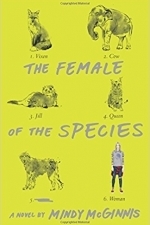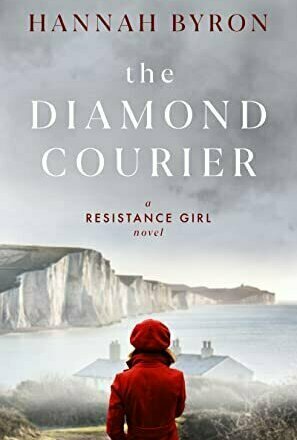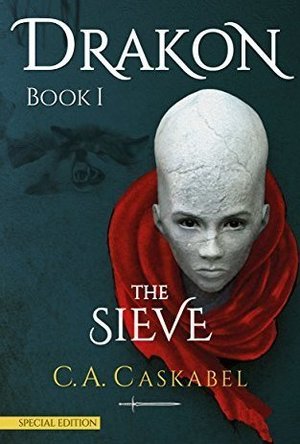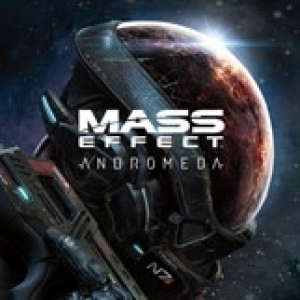Search
Search results
Darren (1599 KP) rated Air (2015) in Movies
Jun 20, 2019
Story: Air starts in the future when the world has gone through a war, the remaining people live in a bunker in sleep chambers, engineers Bauer (Reedus) and Cartwright (Hounsou) both awaken on a routine cycle to check the equipment before returning to their chambers, but when a fire causes them to lose one of their chambers, they must work together with the resources they have because in 2 hours their air supply runs out.
As the clock ticks down the two must face moral decisions which involve risks to the fellow the sleepers in their bunker but finding a way for them both to get back to sleep is the most important part and any means necessary.
Thoughts on Air
Characters – Bauer seems to be the most resourceful of the two technicians in the chamber, he plays things safe and makes sure he knows the damage of any effect the men do. Cartwright seems to be the one who is about to lose his mind, he has visions of his wife who makes him make the decisions he does. While it could be argued these two men are meant to be considered the lower lives of the selected neither of them is made out to be the good guy while both find themselves making bad decisions through the film.
Performance – Both Norman Reedus and Djimon Hounsou are great actors but in this role the two just don’t give their best performances and end up not helping us care about either character.
Story – The story should work, we have the world ending with the only survivors in sleeping pods with two technicians watching over them every so many months or years. The problems here are clear, we have two unlikable characters who while they do take a step back to solve the problem it does just turn into a mindless battle of who will get the upper hand.
Sci-Fi/Thriller – The sci-fi side of the film comes from idea the world has ended and now the few survivors are underground, we are left wondering how the two men could survive with the only one chamber.
Settings – The film is set within the chamber, it shows the unclear feeling of what is outside and the fear of what is happening with no safety in the chamber.
Special Effects – The effects are used well with most being practical until we see the outside world which is as bleak as we are expecting.
That Moment That Annoyed Me – I just didn’t care about the two characters.
Final Thoughts – This is a sci-fi film that we have seen before, we have seen better before but we have seen worse too and lacks the pace we need in the film.
Overall: Disappointing thriller.
https://moviesreview101.com/2018/06/01/air-2015/
As the clock ticks down the two must face moral decisions which involve risks to the fellow the sleepers in their bunker but finding a way for them both to get back to sleep is the most important part and any means necessary.
Thoughts on Air
Characters – Bauer seems to be the most resourceful of the two technicians in the chamber, he plays things safe and makes sure he knows the damage of any effect the men do. Cartwright seems to be the one who is about to lose his mind, he has visions of his wife who makes him make the decisions he does. While it could be argued these two men are meant to be considered the lower lives of the selected neither of them is made out to be the good guy while both find themselves making bad decisions through the film.
Performance – Both Norman Reedus and Djimon Hounsou are great actors but in this role the two just don’t give their best performances and end up not helping us care about either character.
Story – The story should work, we have the world ending with the only survivors in sleeping pods with two technicians watching over them every so many months or years. The problems here are clear, we have two unlikable characters who while they do take a step back to solve the problem it does just turn into a mindless battle of who will get the upper hand.
Sci-Fi/Thriller – The sci-fi side of the film comes from idea the world has ended and now the few survivors are underground, we are left wondering how the two men could survive with the only one chamber.
Settings – The film is set within the chamber, it shows the unclear feeling of what is outside and the fear of what is happening with no safety in the chamber.
Special Effects – The effects are used well with most being practical until we see the outside world which is as bleak as we are expecting.
That Moment That Annoyed Me – I just didn’t care about the two characters.
Final Thoughts – This is a sci-fi film that we have seen before, we have seen better before but we have seen worse too and lacks the pace we need in the film.
Overall: Disappointing thriller.
https://moviesreview101.com/2018/06/01/air-2015/
Hazel (1853 KP) rated Running From Twenty Four in Books
Dec 17, 2018
<i>I received this book for free through Goodreads First Reads.</i>
“Sometimes life isn’t all unicorns puking rainbows when you’re young, free and single in London town.” What Sam thinks is going to be a night of consoling her best friend Jason after the death of his father turns into a drunken night ending in tragedy. Whilst sitting in a pub until the early hours of the morning, Sam and her friends become acquainted with barmaid Toni who invites them to a house party. Too drunk to turn the offer down they all end up at a flat owned by the eccentric Ulysses, drinking cocktails full of who knows what, surrounded by dozens of dressed up people.
Tragic circumstances cause the five 20-somethings to pull together after making poor decisions in an attempt to deal with a certain result of the party. Lack of common sense makes their night worse before it can get better, but thankfully it all turns out all right in the end.
As well as the drunken storyline, the reader learns more about the character Sam, from her dull job to her learning to live with her sexuality. Although the beginning of the story portrays Sam as a girl without much care in the world, it turns out she is suffering with frequent anxiety attacks and depression.
<i>Running From Twenty Four</i> is about people in their twenties trying to find their way in life whilst also dealing with grief and heartbreak. It also comes with a message about appreciating what you have now and not worrying so much about everything else.
<i>Running From Twenty Four</i> by Shem Douglas is a short story that can be read within a couple of hours, however some readers may be uncomfortable with some of the themes, particularly suicidal ideation. Despite some of the morbid topics the story is entertaining and humorous, ideal for readers in their twenties who feel they have not quite found their path in life.
“Sometimes life isn’t all unicorns puking rainbows when you’re young, free and single in London town.” What Sam thinks is going to be a night of consoling her best friend Jason after the death of his father turns into a drunken night ending in tragedy. Whilst sitting in a pub until the early hours of the morning, Sam and her friends become acquainted with barmaid Toni who invites them to a house party. Too drunk to turn the offer down they all end up at a flat owned by the eccentric Ulysses, drinking cocktails full of who knows what, surrounded by dozens of dressed up people.
Tragic circumstances cause the five 20-somethings to pull together after making poor decisions in an attempt to deal with a certain result of the party. Lack of common sense makes their night worse before it can get better, but thankfully it all turns out all right in the end.
As well as the drunken storyline, the reader learns more about the character Sam, from her dull job to her learning to live with her sexuality. Although the beginning of the story portrays Sam as a girl without much care in the world, it turns out she is suffering with frequent anxiety attacks and depression.
<i>Running From Twenty Four</i> is about people in their twenties trying to find their way in life whilst also dealing with grief and heartbreak. It also comes with a message about appreciating what you have now and not worrying so much about everything else.
<i>Running From Twenty Four</i> by Shem Douglas is a short story that can be read within a couple of hours, however some readers may be uncomfortable with some of the themes, particularly suicidal ideation. Despite some of the morbid topics the story is entertaining and humorous, ideal for readers in their twenties who feel they have not quite found their path in life.
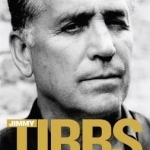
Sparring with Life Jimmy Tibbs My Autobiography
Book
The Kray Twins approached him to be his manager at the age of 18, but his dad had the unenviable...
Olivia (102 KP) rated The Female of the Species in Books
Mar 27, 2019 (Updated Mar 27, 2019)
1/3rd Hard Candy, 1/3rd American Psycho 2, and 1/3rd Netflix's The End of the Fxxxing World
This book was perfect. I don't think I can really say anything negative about it. I found myself unable to tear my eyes from the pages for even a moment. I guess if I really had to nitpick, the ending was a little predictable. But that in no way takes away from the rest of the story or McGinnis' masterful writing.
I've heard a few people say it was intense, hard to finish. I personally, did not have that trouble. Then again, I watched and read a lot of stuff I probably shouldn't have at a really young age and am probably, at least slightly, emotionally stunted. I can definitely see where other readers are coming from though. So, as much as I highly recommend this book, proceed with caution.
I've heard a few people say it was intense, hard to finish. I personally, did not have that trouble. Then again, I watched and read a lot of stuff I probably shouldn't have at a really young age and am probably, at least slightly, emotionally stunted. I can definitely see where other readers are coming from though. So, as much as I highly recommend this book, proceed with caution.
Hazel (1853 KP) rated The Diamond Courier in Books
Dec 10, 2020
Twenty years have passed since the end of Hannah Byron's World War One novel In Picardy's Fields. It is now 1939 and the Second World War is just beginning, but all seems peaceful in Kent, England where the narrator, Lili Hamilton, lives with her parents. War is the last thing on Lili's mind as she contemplates how to get out of an arranged marriage and pursue a career in journalism.
The surname Hamilton may be familiar to those who have read the previous book but Lady Madeleine has left her war achievements far behind in The Diamond Courier where she plays the role of a prim and proper lady of the house. Her daughter, Liliane, feels trapped by her sensible parents' expectations who thwart her plans to be a political journalist. Yet Lili, encouraged by the handsome leader of the British Communist Party Leo Oppenheim, perseveres, thus estranging herself from her family.
Lili soon learns living in London with Leo is not the life she desired, but feels it is too late to back out, especially after witnessing the treatment of Jews on the continent. The Jewish community need someone to bring their precious diamonds to safety before the Germans get their hands on them, and they believe Lili is the best person for the job. Unless, of course, she gets caught.
The Diamond Courier is much darker than Byron's previous book. Naturally, war is not a happy topic, but the sense of hope felt in In Picardy's Fields is missing in this novel. The story divides into two sections, "Leo" and "After Leo". The former is lengthier, drawn-out, and not always pleasant to read. The latter, on the other hand, is packed with danger, excitement and adventure.
For Lili, Communism is something new and exciting, which she desires to pursue. The party has clear views about the war, with which all members must agree. Yet, when faced with the horrors of war, Lili realises she must cast aside her political opinions. Whether Communist, Jew, sympathiser or resistance member, no one deserves the terrible treatment delivered by the Nazis.
Although this is a work of fiction, Byron remains faithful to the true nature of the Second World War. She does not gloss over any of the atrocities and, whilst the reader keeps their fingers and toes crossed that Lili will get her "happily ever after" ending, this cannot be possible for everyone in the novel.
Aiming to show the strength of women living in a "man's world", Byron has created female characters of whom to be proud and respect. Whilst the storyline may not always be pleasant, it is a gripping narrative that immerses the reader into Lili's life and experiences. Hannah Byron has a way with words that keeps the reader engaged throughout. She is an author to keep an eye on.
The surname Hamilton may be familiar to those who have read the previous book but Lady Madeleine has left her war achievements far behind in The Diamond Courier where she plays the role of a prim and proper lady of the house. Her daughter, Liliane, feels trapped by her sensible parents' expectations who thwart her plans to be a political journalist. Yet Lili, encouraged by the handsome leader of the British Communist Party Leo Oppenheim, perseveres, thus estranging herself from her family.
Lili soon learns living in London with Leo is not the life she desired, but feels it is too late to back out, especially after witnessing the treatment of Jews on the continent. The Jewish community need someone to bring their precious diamonds to safety before the Germans get their hands on them, and they believe Lili is the best person for the job. Unless, of course, she gets caught.
The Diamond Courier is much darker than Byron's previous book. Naturally, war is not a happy topic, but the sense of hope felt in In Picardy's Fields is missing in this novel. The story divides into two sections, "Leo" and "After Leo". The former is lengthier, drawn-out, and not always pleasant to read. The latter, on the other hand, is packed with danger, excitement and adventure.
For Lili, Communism is something new and exciting, which she desires to pursue. The party has clear views about the war, with which all members must agree. Yet, when faced with the horrors of war, Lili realises she must cast aside her political opinions. Whether Communist, Jew, sympathiser or resistance member, no one deserves the terrible treatment delivered by the Nazis.
Although this is a work of fiction, Byron remains faithful to the true nature of the Second World War. She does not gloss over any of the atrocities and, whilst the reader keeps their fingers and toes crossed that Lili will get her "happily ever after" ending, this cannot be possible for everyone in the novel.
Aiming to show the strength of women living in a "man's world", Byron has created female characters of whom to be proud and respect. Whilst the storyline may not always be pleasant, it is a gripping narrative that immerses the reader into Lili's life and experiences. Hannah Byron has a way with words that keeps the reader engaged throughout. She is an author to keep an eye on.

Lonely Planet Traveller
Travel and Magazines & Newspapers
App
Need holiday inspiration? Lonely Planet Traveller is packed with ideas, whether you’re after a...
Ross (3284 KP) rated The Sieve (Drakon Book 1) in Books
Jul 31, 2018
Very short book 1 of 4
This first instalment in the Drakon book sees a mysterious figure, Da-Ren, appear at a monastery looking for salvation, and then follows his memories of his coming-of-age journey as a 12 year-old boy. Dragged from his bed in the orphans camp of his tribe and thrown into The Sieve - a 6 week long trial to weed out the weakest of the tribe, he and his fellow tribe members are forced to stand barely clothed in the freezing field - if they don't fall they get the luxury of clothes and meat; otherwise its porridge. The story flows really well and only seems to drag in a couple of chapters - quite a feat considering the daily drudge being described!
This first part is very short indeed and I can't help but wonder why. I think the overall page count of the full 4 "book" series is about 1500 - so cutting it in to 4 sections seems a little far. This book is about 250 pages. While it tells the full story of Da-Ren's time in the sieve and concludes with his final rating (the role he will perform for the tribe for the rest of his life) I think more of the present story (the monastery) could have been added on the end. A story featuring flashbacks should absolutely not finish in the flashback - showing that this is not really a standalone book at all.
I will read the rest of the series in due course as I loved the storytelling, the world built and am intrigued as to what is next.
This first part is very short indeed and I can't help but wonder why. I think the overall page count of the full 4 "book" series is about 1500 - so cutting it in to 4 sections seems a little far. This book is about 250 pages. While it tells the full story of Da-Ren's time in the sieve and concludes with his final rating (the role he will perform for the tribe for the rest of his life) I think more of the present story (the monastery) could have been added on the end. A story featuring flashbacks should absolutely not finish in the flashback - showing that this is not really a standalone book at all.
I will read the rest of the series in due course as I loved the storytelling, the world built and am intrigued as to what is next.
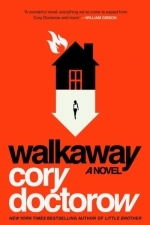
Walkaway: A Novel
Book
From New York Times bestselling author Cory Doctorow, an epic tale of revolution, love,...
Science fiction fiction
Anna Marie Green (7 KP) rated Mass Effect: Andromeda in Video Games
Jul 3, 2018
Incredible Scenery (2 more)
Excellent Gameplay
Good Story Concept
Horrible Dialogue Interactions (4 more)
Rushed Production Led to Disastrous Bugs
The Faces
Online Mode
Romance Options Feel Hollow
The Tragedy of Mass Effect
The game I love to hate.
ME:A is worth at least a single playthrough, at least to understand where the complainsts were coming from. This game enrages us so much for a variety of reasons:
1. It Isn't Really Mass Effect
For a the bells and whistles of the Mass Effect title, Andromeda feels more like an Alternative Universe Fanfiction. There are hints of the original hidden in the world– messages from Liara T'Soni, a mention of Shephard, and the logs with the Reapers– but the story is so jarringly different at times that they could have replaced any of the alien species with new ones and been none the wiser. Ryder's relationship with SAM is at complete odds with the entirery of the Mass Effect story. This was probably BioWare's narrative goal, but it was so poorly executed that it just read as lazinezs.
2. The Dialogue
I'm not entirely sure who was in charge of the game's dialogue, but I am certain they helped ghostwrite 50 Shades of Grey.
"He's dead. Ha. Probably because I shot him in the face."
"You, and your god damned father. Sorry. My face is tired."
It's just... Horrible. Like a really crummy porno imitation of a good film. The voice actors have awkward pauses and scenes where they just look at you for a few moments.
3. The Ruined Potential
The worst thing about this game is the fact that underneath all the mistakes, the palimpsest of poorly written dialogue, and the rushed money-grubbing of a rabid EA, Mass Effect Andromeda was actually... Fun? The story was genuinely interesting. The characters had good stories. The worlds were beautiful and creative.
The Angara were interesting and creative. The revelation towards the end? I wouldn't say I was completely surprised, but it did leave me wanting to know about the galaxy beyond the Heleus Cluster.
It's just a shame they ruined their own creation before it was even completed.
Andromeda was flawed and greedy, but at the same time, it was a testament to game design and world development.
ME:A is worth at least a single playthrough, at least to understand where the complainsts were coming from. This game enrages us so much for a variety of reasons:
1. It Isn't Really Mass Effect
For a the bells and whistles of the Mass Effect title, Andromeda feels more like an Alternative Universe Fanfiction. There are hints of the original hidden in the world– messages from Liara T'Soni, a mention of Shephard, and the logs with the Reapers– but the story is so jarringly different at times that they could have replaced any of the alien species with new ones and been none the wiser. Ryder's relationship with SAM is at complete odds with the entirery of the Mass Effect story. This was probably BioWare's narrative goal, but it was so poorly executed that it just read as lazinezs.
2. The Dialogue
I'm not entirely sure who was in charge of the game's dialogue, but I am certain they helped ghostwrite 50 Shades of Grey.
"He's dead. Ha. Probably because I shot him in the face."
"You, and your god damned father. Sorry. My face is tired."
It's just... Horrible. Like a really crummy porno imitation of a good film. The voice actors have awkward pauses and scenes where they just look at you for a few moments.
3. The Ruined Potential
The worst thing about this game is the fact that underneath all the mistakes, the palimpsest of poorly written dialogue, and the rushed money-grubbing of a rabid EA, Mass Effect Andromeda was actually... Fun? The story was genuinely interesting. The characters had good stories. The worlds were beautiful and creative.
The Angara were interesting and creative. The revelation towards the end? I wouldn't say I was completely surprised, but it did leave me wanting to know about the galaxy beyond the Heleus Cluster.
It's just a shame they ruined their own creation before it was even completed.
Andromeda was flawed and greedy, but at the same time, it was a testament to game design and world development.
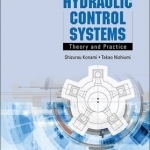
Hydraulic Control Systems: Theory and Practice
Takao Nishiumi and Shizurou Konami
Book
A hydraulic system controls the transmission of energy. It transforms the mechanical energy of a...


